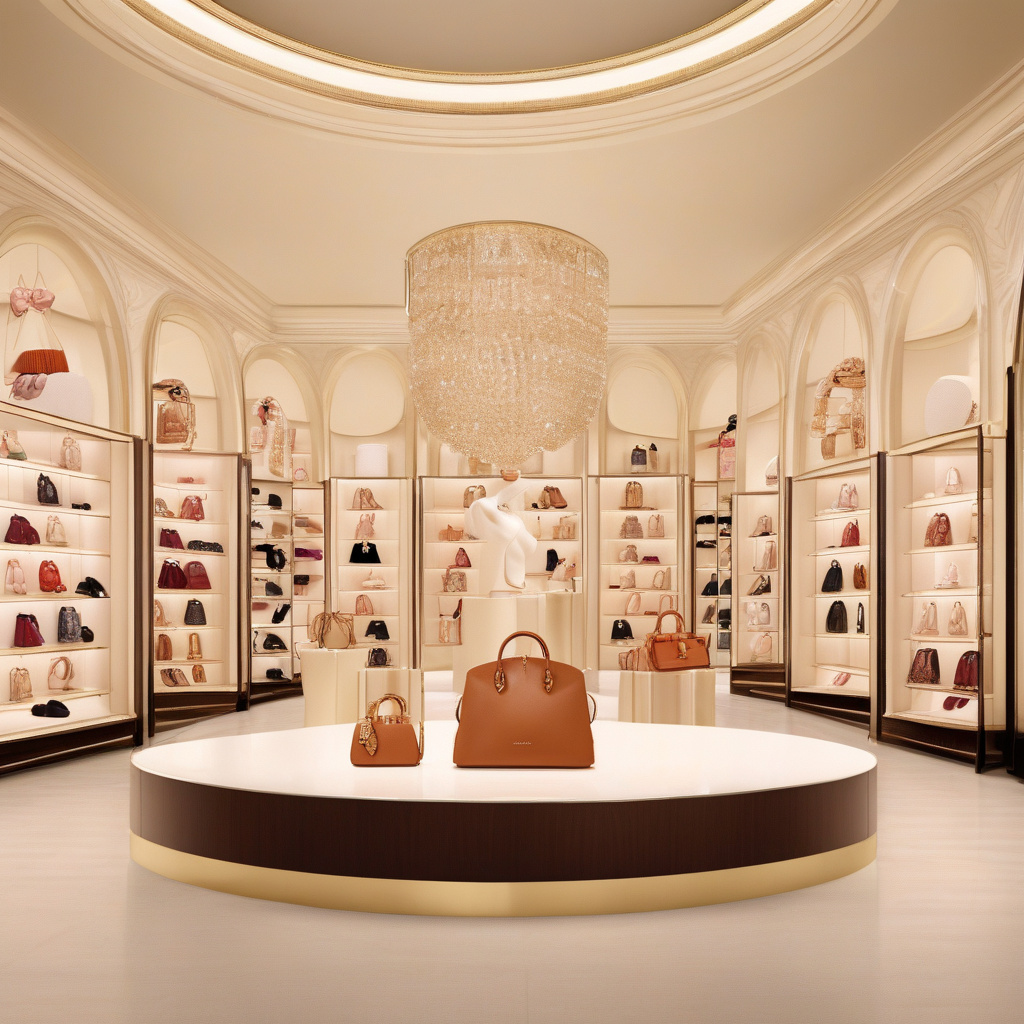LVMH Sales to Test Luxury Investors’ Nerves After Tariff Pain
As the luxury market faces mounting pressure, all eyes are on LVMH Moët Hennessy Louis Vuitton, the world’s largest luxury goods conglomerate. The company is set to report its first-quarter sales this Tuesday, and many investors are bracing themselves for potentially disappointing results. This comes at a time when a luxury stocks index compiled by Goldman Sachs Group Inc. has shed more than $200 billion from its February peak, raising serious concerns about the sector’s future.
The luxury market has always been sensitive to various economic factors, but recent tariff issues and changing consumer behavior have introduced new challenges. Tariffs imposed on luxury goods have significantly affected pricing strategies, and as these costs trickle down to consumers, the demand may wane. For a company like LVMH, which relies heavily on the spending habits of affluent consumers, this could spell trouble.
Investor sentiment has already begun to shift as hopes fade for a rebound fueled by U.S. economic resilience or stimulus measures from China. The luxury sector has long looked to these two markets for growth, but recent data suggests that the anticipated recovery may not materialize as quickly as many had hoped. With the luxury stocks index reflecting a significant decline, it is clear that investors are feeling the strain.
LVMH’s diverse portfolio, which includes brands like Louis Vuitton, Dior, and Moët & Chandon, has historically insulated the company from economic fluctuations. However, the current landscape poses a unique challenge. The luxury market is not only facing tariff-related issues but also the impact of changing consumer preferences. Younger consumers are increasingly prioritizing experiences over material goods, which could redefine luxury spending.
Analysts are closely monitoring LVMH’s upcoming sales report, which will provide valuable insights into consumer behavior in the luxury sector. A disappointing quarter could further dampen investor confidence, while positive results may offer a glimmer of hope. However, many are skeptical about the ability of LVMH to navigate these turbulent waters.
The potential repercussions of LVMH’s sales report extend beyond the company itself. The luxury goods sector as a whole is watching closely, as LVMH’s performance is often seen as a barometer for the industry. If LVMH struggles to meet expectations, it could lead to a ripple effect, impacting other luxury brands and further eroding investor confidence.
In addition to tariffs and consumer behavior, the global economic climate adds another layer of uncertainty. Inflation rates are rising, and consumer spending is becoming increasingly cautious. Luxury brands, which often rely on discretionary spending, may find themselves in a precarious position. The question remains: will consumers continue to splurge on high-end goods, or will they tighten their belts in response to economic pressures?
Another factor to consider is the competitive landscape. Other luxury brands are also feeling the impact of these market dynamics, and as competition intensifies, LVMH may need to rethink its strategies to maintain market share. Innovations in marketing, shifts in product offerings, and a focus on sustainability could be critical in capturing the attention of today’s discerning consumers.
As LVMH prepares to release its first-quarter sales figures, investors are left to ponder their next moves. Some may see this as a buying opportunity, while others may choose to err on the side of caution, waiting to see how the luxury giant navigates these challenges. The luxury market has always been a rollercoaster, and the upcoming sales report could serve as a crucial indicator of whether it is on the verge of a rebound or heading for a more prolonged downturn.
In conclusion, LVMH’s sales report will be a pivotal moment for luxury investors. The pressures from tariffs, evolving consumer preferences, and a challenging economic landscape create a complex environment for the luxury sector. As the market awaits the results, the outcomes could reshape strategies for both LVMH and its competitors, ultimately determining the future trajectory of the luxury goods market.
luxury, investment, LVMH, market trends, consumer behavior
